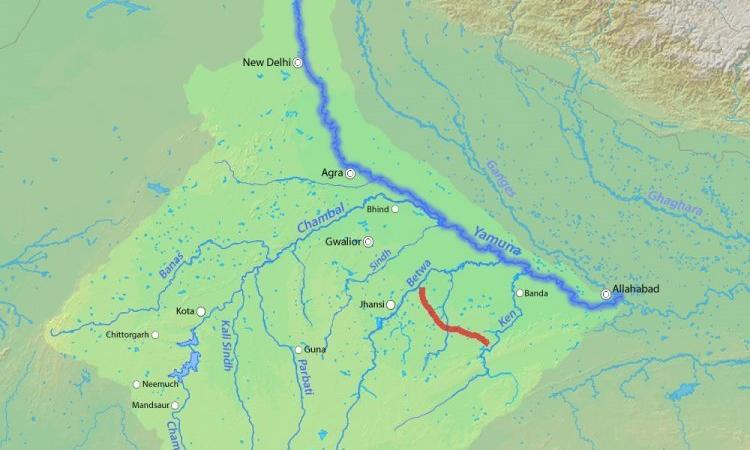
Panna locals stand against Ken-Betwa river link
Under the banner of Panna Parivartan Manch, the people of Madhya Pradesh's Panna district are opposing the river link between Ken and Betwa rivers. According to the protesters, the project will be disastrous for the district, particularly the Panna National Park, a tiger reserve. The protesters have submitted separate memoranda to President Pranab Mukherjee, Prime Minister Modi, water resources minister Uma Bharti and chief minister Shivraj Singh Chouhan, demanding that Panna’s interests should be kept in mind while going ahead with the river link project.
Punjab set to face groundwater crisis
Out of the total 147 blocks in Punjab, 61 more blocks will soon be declared serious with regard to groundwater depletion. This is in addition to the 44 blocks in the state which have already been declared serious by the Central Ground Water Authority. According to the officials, the reason for the groundwater depletion is the continuous cultivation of wheat and paddy crop in the state. However, farmers still stick to growing the water-intensive crops as they feel that they would not yield results until the government fixes a minimum support price (MSP) for the crops.
Rs 30 crore cloud seeding project approved for Karnataka
After the failure of monsoon in the state for the third consecutive year, the Karnataka government has approved Rs 30 crore for cloud seeding to be carried out over catchment areas. The contract for the project has been given to Bengaluru-based Hoysala Projects Pvt. Ltd which is required to take up cloud seeding within 60 days in three major catchment areas of Cauvery, Malaprabha and Tungabhadra rivers in the state. Along with this, the state has requested the Centre to waive off farm loans taken from commercial and nationalised banks.
Pune NGO wins accolade for devising sustainable agriculture model
The United Nations Development Programme’s Equator Prize has accorded an award to Swayam Shikshan Prayog, a Pune-based NGO for devising an ecologically sustainable agriculture model to combat the adverse impacts of drought. The organisation has won the award, making the cut from more than 800 nominations across 120 countries. The prize-winning initiative is a women-led ‘climate resilient agro-ecological farming model’ for restoring land and soil which helped to empower more than 20,000 marginal women farmers and their families in Marathwada.
Use of wastewater in irrigation puts millions of lives at risk: Study
According to a recent study, India and four other countries--China, Pakistan, Mexico and Iran--account for the most cropland in the world irrigated by dirty wastewater, posing serious health risks to millions. Along with this, the study has revealed that the global use of untreated wastewater from cities to irrigate crops downstream is 50 percent more widespread than previously thought. The study has used advanced modelling methods to provide a comprehensive estimate of the global extent to which farmers use urban wastewater on irrigated cropland.
This is a roundup of important news from June 27 - July 3, 2017. Also, read the policy matters this week.
Lead image source: Shannon via Wikipedia